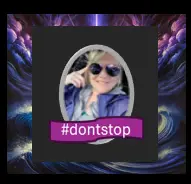Validation and Self-Acceptance
What happens: A formal label explains why you’ve always experienced the world differently—whether it’s sensory sensitivities, social fatigue, or needing extra downtime.
Why it matters: Instead of blaming yourself (“Why can’t I just ‘snap out of it’?”), you recognize these traits as part of how your brain works. That shift alone can relieve years of self-doubt.
Reframing Past Experiences
What happens: You revisit childhood memories—feeling overwhelmed in bright classrooms or masking your discomfort to fit in—and view them through a new, compassionate lens.
Why it matters: Recontextualizing painful moments reduces self-blame (“I wasn’t lazy or broken; I was coping the best I could”) and opens the door to healing old wounds.
An End to Masking Burnout
What happens: Masking—mimicking social cues or forcing “neurotypical” behaviors—requires constant mental effort and can lead to exhaustion, anxiety, or depression.
Why it matters: Once you know your neurotype, you can unmask in safe spaces, preserve energy for what matters, and protect your mental health.
Access to Language and Strategies
What happens: Suddenly terms like “sensory overload,” “stimming,” or “executive function differences” stop being jargon and become tools for understanding yourself.
Why it matters: With this vocabulary, you can research coping strategies (e.g., noise-canceling headphones, structured routines) that actually fit how your brain works—rather than generic advice that never helped.
Connection and Community
What happens: You discover others who share your experiences—online forums, local support groups, or advocacy networks.
Why it matters: No more feeling like the lone oddball. Sharing tips, celebrating strengths, and knowing you belong fuels resilience and joy.
Empowerment and Self-Advocacy
What happens: Armed with a diagnosis, you can request accommodations (at work, school, or public services) under laws like the ADA. You also learn to ask for what you need in relationships and projects.
Why it matters: Taking control of your environment prevents burnout and builds confidence—because you’re no longer apologizing for your wiring; you’re honoring it.
Multiple Perspectives:
Clinical (Psychology): Diagnosis offers a roadmap to targeted therapies and supports (e.g., occupational therapy for sensory processing).
Social (Sociology): Joining a neurodivergent community combats stigma and fosters collective advocacy.
Personal (Narrative): Shifting your story from “I’m broken” to “I have a unique mind” rewrites your life script in real time.
Why Getting My Neurodivergent Diagnosis Changed My Life
Of all the diagnoses I’ve received, discovering that I’m neurodivergent was the first and only one that truly made me feel whole, complete, understood, and included. It wasn’t just another label, another prescription, or another list of symptoms—this was genuine clarity. For the first time, everything finally clicked into place.
I’ve had countless titles assigned to me, taken pills that didn’t work, tried therapies that didn’t resonate, and sifted through endless pages of theories and definitions. But none of those things gave me peace. None of them helped me understand who I truly was.
This diagnosis was different. This wasn’t about fixing something broken; it was about discovering my authentic self beneath all the noise. It meant realizing that my brain, with all its quirks and complexities, was never broken—just wired differently. And that difference is something to embrace, not suppress or hide.
Having this knowledge didn’t just help—it transformed me. It set me free.
